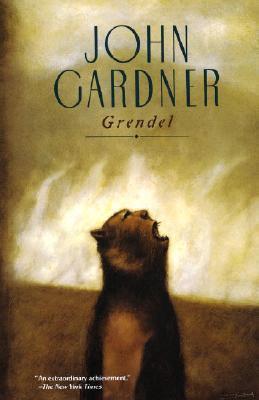Chapter 3
byChapter 3 begins with the narrator reflecting on their evolving feelings toward Hrothgar. Initially dismissing past conflicts as the reckless actions of youth, the narrator’s feelings gradually shift, transforming into a deep, dark desire for revenge. Over time, they observe Hrothgar’s growing influence with a mixture of both amusement and disdain, recognizing the changes in the king’s power and the world around him. The narrator’s inner turmoil stems from the realization that, while Hrothgar’s rise to power seems inevitable, it fuels a growing resentment in the narrator. This resentment manifests in their silent judgment as they observe the political landscape and the shifting power dynamics from a distance, sensing that revenge may one day come to fruition. The chapter emphasizes the complexity of the narrator’s emotions, which oscillate between disdain and fascination with Hrothgar’s success.
The narrator watches as the early groups of men evolve from ragged bands of hunters, struggling among themselves for food, into more organized and strategic communities. Initially, these men fought over basic resources, creating an atmosphere of violence and mistrust. However, as they began to settle and establish settlements, the roles of men and women became more defined, with men focusing on hunting and women managing domestic duties. Yet, this newfound organization did not erase the violence; instead, it evolved into a more structured form, where boasts and challenges exchanged in mead halls led to battles and bloodshed. This cycle of conflict and betrayal plays out as some fighters join forces, only to later turn on each other, feeding the narrator’s fascination with the brutality of human nature. As the narrator observes, they feel both disgusted and intrigued by the human capacity for violence, indulging in their leftovers while wrestling with complex emotions about the world unfolding before them.
The chapter delves deeper into the evolution of conflict, where direct confrontation gives way to more strategic warfare, with men increasingly relying on tribute and calculated alliances. Hrothgar, once an equal among his peers, begins to rise above others, establishing dominance and transforming the nature of conflict. His strategic use of power allows him to demand tribute from surrounding clans, creating a complicated system of fealty where power is maintained through alliances and submission. This shift in power dynamics intrigues the narrator, who is keenly aware of the changing world around them. Hrothgar’s decisions—such as the construction of roads to facilitate the movement of tribute—demonstrate his ambition and adaptability in consolidating his power. The narrator’s grim acceptance of the growing prominence of war marks a moment of personal reflection, as they witness the destruction it causes yet cannot help but feel a strange sense of kinship with the men caught up in these conflicts. This internal conflict is mirrored in the shifting power structures that now dominate their world.
The arrival of a blind harper symbolizes the intoxicating power of storytelling, as his songs captivate Hrothgar’s court. His tales of glory and noble lineage instill a misplaced sense of pride in the warriors, masking the reality of the violence and chaos they live in. The harper’s songs, filled with grandeur and heroism, lead the warriors to believe in their own importance and legacy, clouding their perceptions of the truth. Despite the harper’s success in enchanting the audience, he is later cast aside and forgotten, reflecting the fleeting nature of fame and the deceptive power of art. This episode highlights the ability of stories to shape people’s beliefs and identities, offering a false sense of purpose to those who need it most. The chapter examines how easily truth can be manipulated through art, with the warriors’ pride growing from tales of glory rather than the grim realities of their lives.
The narrator reflects on the stark contrast between the glorified legacy Hrothgar’s court believes in, shaped by the harper’s songs, and the brutal, ongoing reality of their existence. The violence, hunger, and betrayal that underpin the kingdom’s operations are hidden behind the veneer of glory and pride fostered by the harper’s tales. This realization forces the narrator into a state of sorrow and confusion, caught between the constructed stories of heroism and the truth of the world that surrounds them. As the chapter concludes, the narrator’s turmoil is palpable, as they struggle to reconcile their awareness of the destruction they have witnessed with the image of power and glory that Hrothgar has built. The anguish felt by the narrator stems from the difficulty of comprehending the truth of existence in a world dominated by conflict, where memory and legacy are shaped by those in power rather than the harsh realities of daily life.

